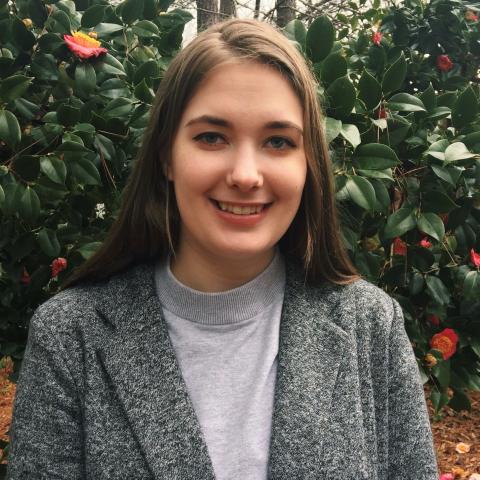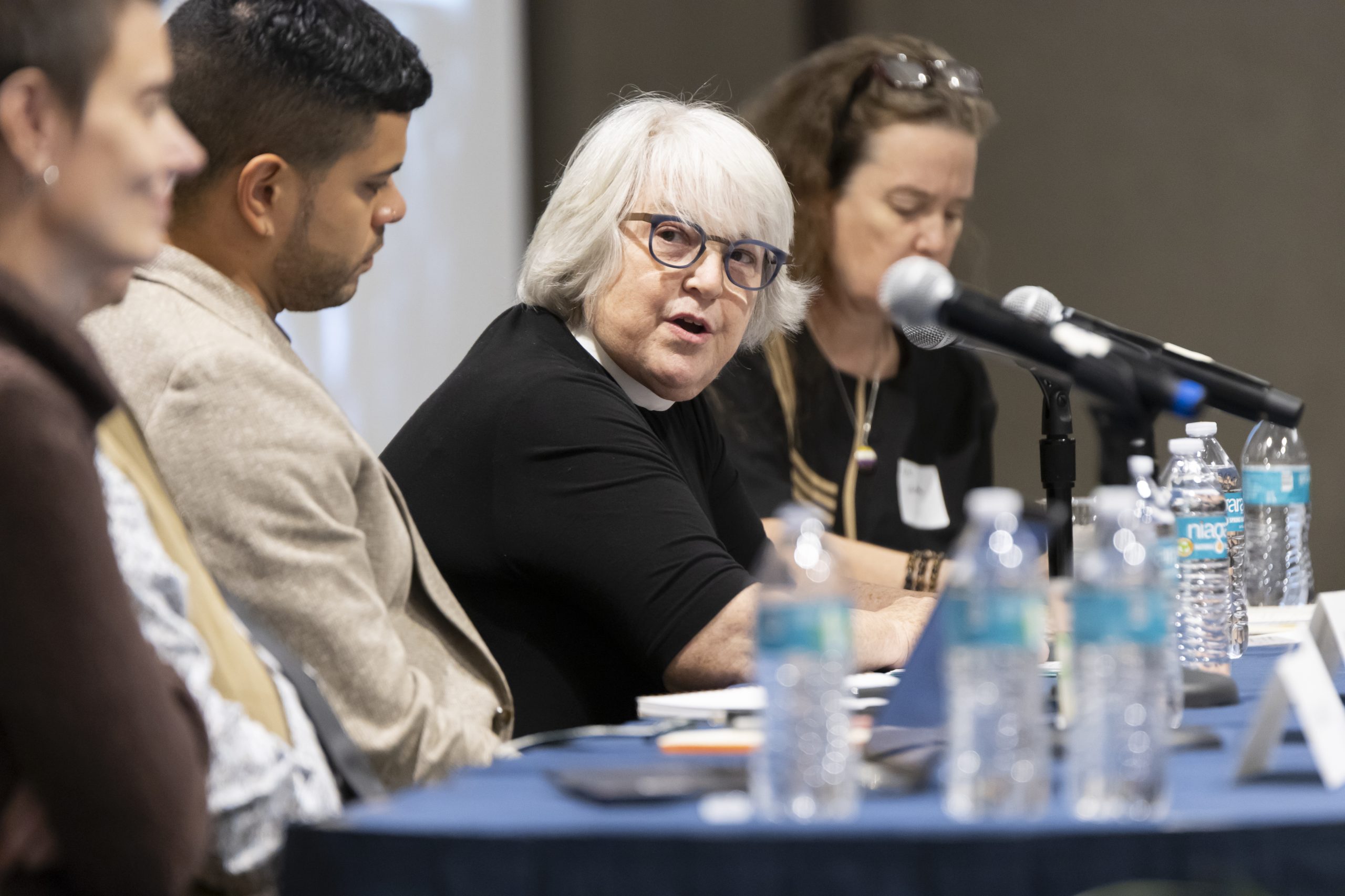
Combating Hate and Bias Recap:
Hate and Bias Toward the LGBTQ+ Community in Contemporary Politics
Meg Bittle
Jan 8, 2024
Panel 4 of the Combating Hate and Bias conference focused on hate and bias towards the LGBTQ+ community in contemporary politics. Panelists included Angel Collie, Director of the Duke Center for Sexual and Gender Diversity; Sara LeGrand, Associate Research Professor, Duke Global Health Institute and Center for Health Policy and Inequalities Research; Co-Director of the Duke Sexual and Gender Minority Wellness Program; Nancy Petty, Senior Pastor at Pullen Memorial Baptist Church and Michael Vazquez, Founding Partner of The Maiden Group, Public Theologian and Community Organizer, Former Director, Human Rights Campaign. The panelists highlighted both the political and social progress and setbacks in advancing the rights of the LGBTQ+ community.
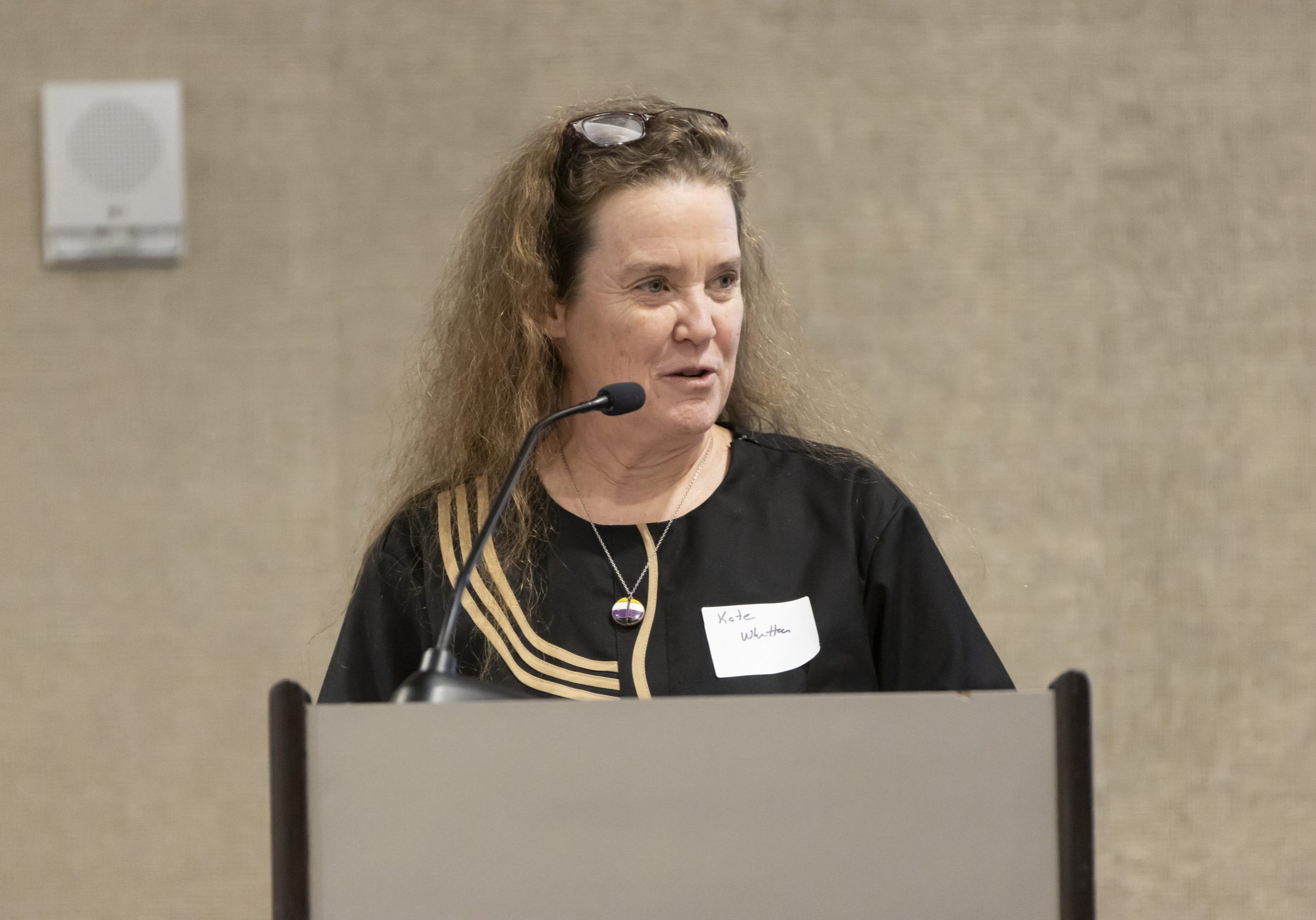
Kate Whetten, Duke Professor of Public Policy and Global Health, Director, Center for Health Policy and Inequalities Research, Duke Global Health Institute, as well as the Co-Director, Duke Sexual and Gender Minority Wellness Program, moderated the panel. Whetten set the scene by describing the current political climate in the US and North Carolina: “In this year, 2023, we have seen a new wave, a growing wave of bills, particularly against gender diverse people. There are over 520 anti-LGBTQ+ bills introduced in the state legislatures in this country. Over 220 bills specifically targeting transgender and nonbinary people and 70 of those bills became laws including three of them in this state.”
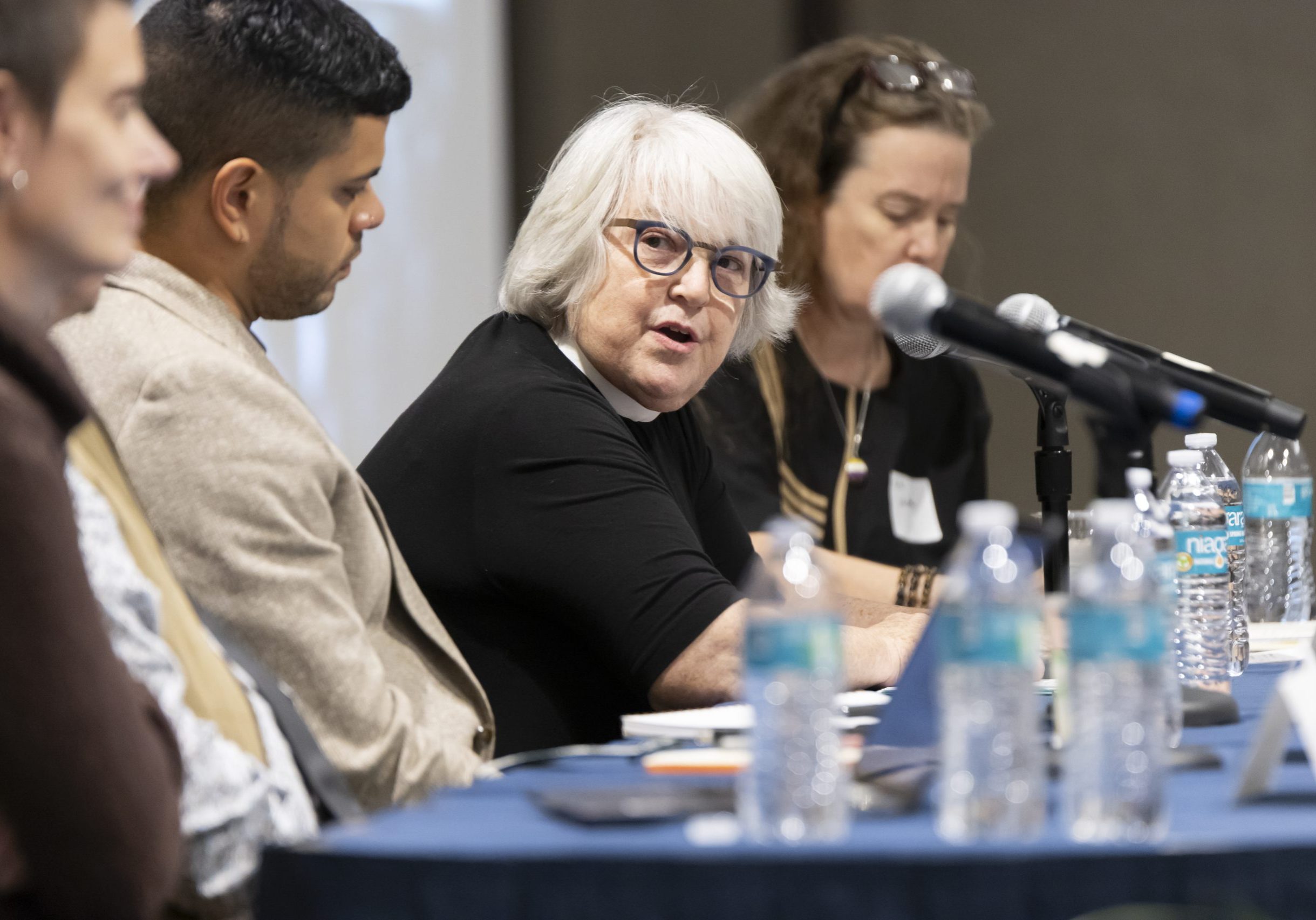
Nancy Petty highlighted these three bills: House Bill 574 or the Fairness in Women’s Sports Act, which she calls “anything but fair;” Senate Bill 49 or the Parent’s Bill of Rights (otherwise known as the “Don’t Say LGBTQ+ Bill”); and House Bill 808 that bans all healthcare providers from providing gender affirming care to minors. She argues that hate and bias towards the LGBTQ+ community “no longer lingers in the shadows but is rather codified in North Carolina law.”
As a practitioner, she combats hate and bias by providing a safe space and support groups for the LGBTQ+ community in her church. She ensures that their voices are represented in all aspects of the church structure. Her church voted unanimously to stop all weddings until marriage equality was the law. She also actively protests and practices civil disobedience for the rights of the LGBTQ+ community.
She believes the best way to support the community is to highlight the stories of real people. She talks of marrying a non-cisgender couple at Duke Hospital, after one of them had received a devastating diagnosis. The nurses and doctors had scrummaged through old supplies to decorate the space, got cake from the cafeteria, and lined the room to support the couple during the ceremony. Afterwards, one of the doctors wrote to Petty how witnessing the wedding had changed his life forever. She also talks of supporting transgender youth and their parents as they navigate school, church, and the new bills passed in North Carolina’s legislature. Petty concludes that providing safe spaces, especially religious and spiritual, matter and until her last breath she has committed herself to doing this work.
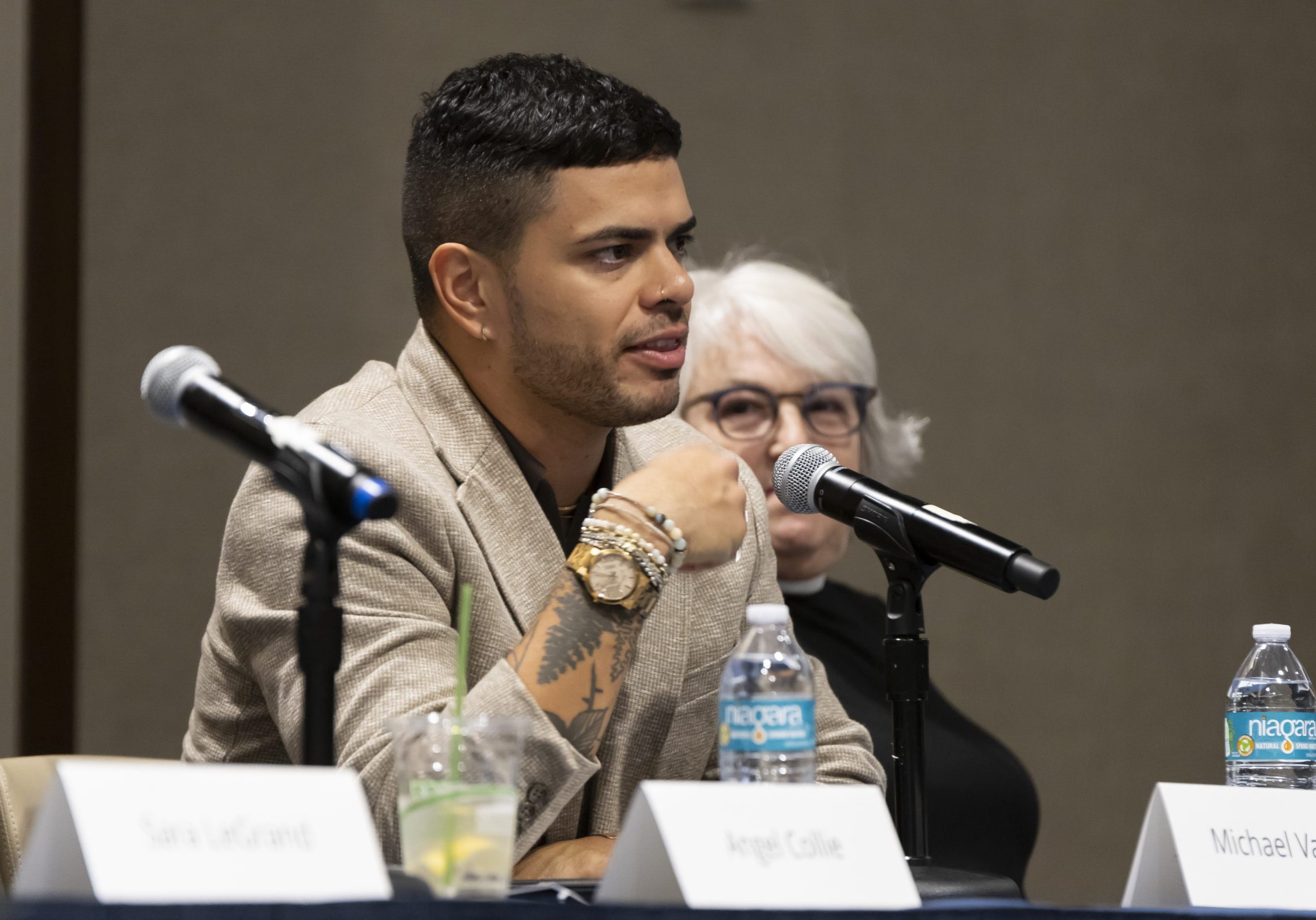
Michael Vazquez came from a conservative evangelical background and was expected to go through conversion therapy. He described himself as a “deeply traumatized kid, searching for home, searching for family.” He was able to leave after being emboldened by the murder of Michael Brown in Ferguson Missouri and the aftermath of the Obergefell decision which made gay marriage lawful. “In both instances we saw movements rise up in support of justice and in support of life.” Evangelicalism responded to the BLM movement and the advancement of LGBTQ+ rights advancing in this country by “buckling down” in its racism and homophobia. He argues that all of evangelism isn’t evil or harmful, but many of its manifestations in the United States bring about pain and violence to minority communities.
He continues that there is “a core illness in American society. The idea that if I give you rights, the only way I can do that is stripping rights away from me.” This explains the failure to pass the Equality Act in 2021 that would have brought sexual orientation and gender identity into the 1960s Civil Rights Act and other civil rights legislation. He argues that progressive movements need to continue to build strategic coalitions and relationships to change not only the law for the benefit of all sexual and gender identities, but the culture.
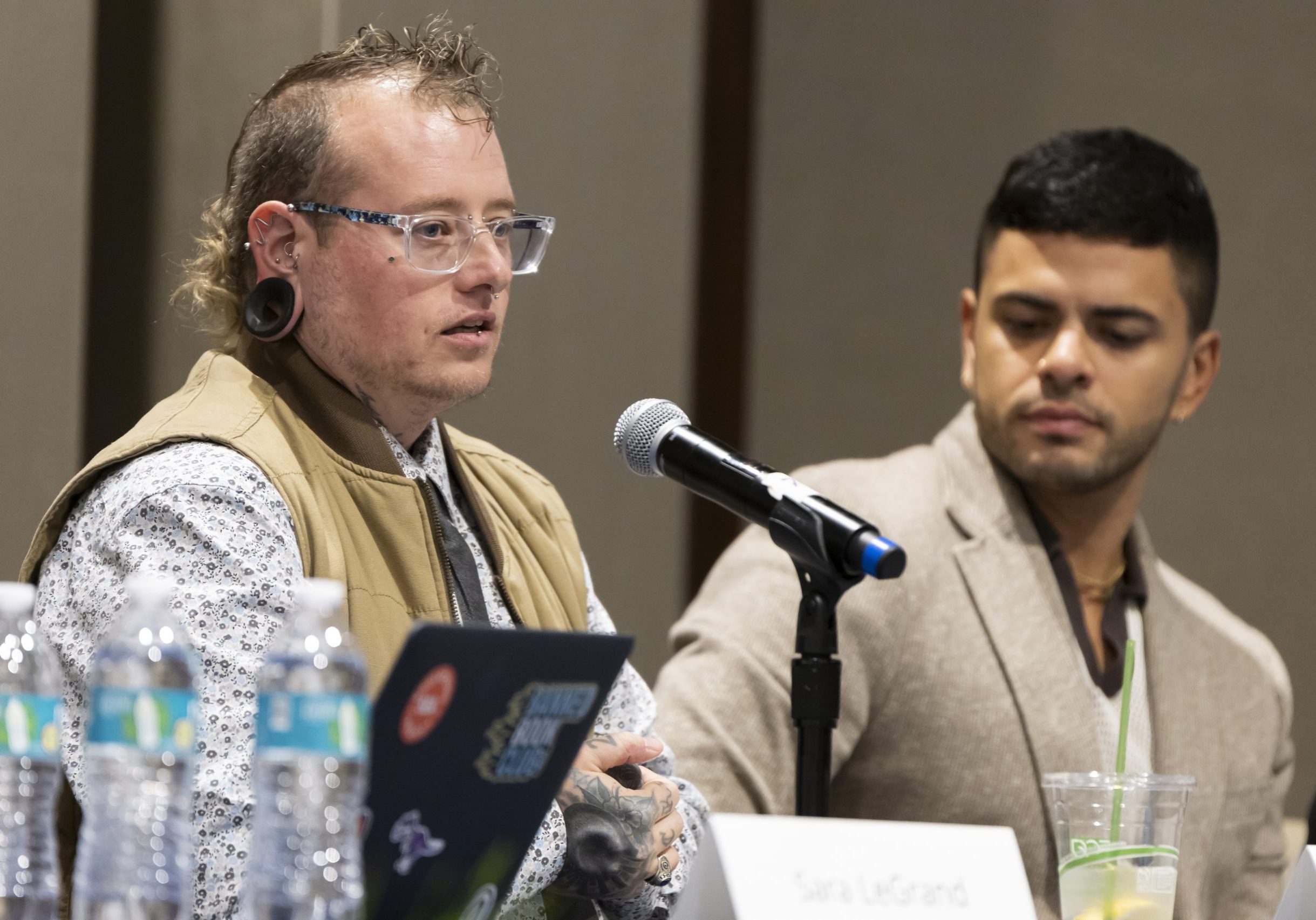
Angel Collie begins by arguing that he “has one of the best jobs in the world,” providing support and a safe space for Duke’s queer and trans students as Director of the Duke Center for Sexual and Gender Diversity. “I get to hangout and be present with our queer and trans students and allies here on campus…provide what I like to call a soft-landing place and a place that they can bring their whole selves authentically.” He argues that the NC bills Nancy Petty highlighted have had an “incredible negative impact on our community.” In particular, he argues that transgender individuals face high rates of discrimination and violence, and that 41% of transgender people have attempted suicide. “Trans people, especially trans people with other marginalized identities, experience injustice in every single public accommodation in our country” including healthcare, education, employment, and housing. Transgender people then must decide between meeting their basic needs or living authentically.
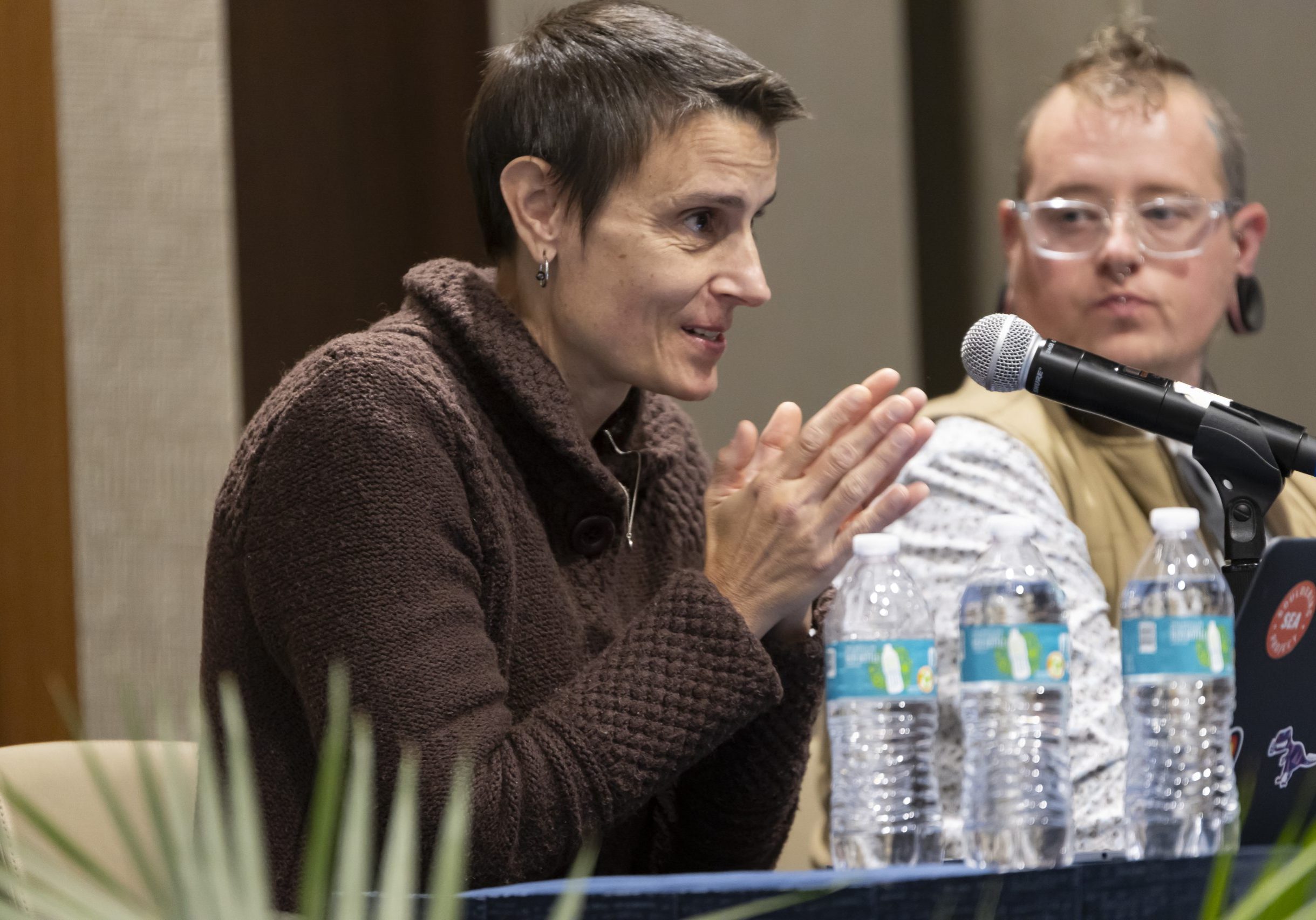
Sara LeGrand says she “has always been social justice minded.” For 15 years, she conducted large-scale research on HIV prevention and care, particularly for gay and bisexual men. She argues that studying issues to access and disease outcomes was a “tremendous life experience.” However, after time she realized her research was too narrow and could even be stigmatizing. She then shifted her focus on the overall health and wellbeing of all sexual and gender diverse people. Unfortunately, there is little data and research on the topic, especially regarding those with intersectional identities. “We are so far behind in understanding who our population is, what the health experience is, [and] how we can address those health disparities,” she argues.
Several of the panelists assert that there has been a reversal of the progress made for the LGBTQ+ community. LeGrand argues that setbacks in the United States have influenced many countries around the world, particularly in East Africa. For example, Uganda has passed one of the harshest anti-homosexuality bills in recent history. It includes life imprisonment and even the death penalty for “aggravated homosexuality.” It calls on communities and individuals to expose those that are gay or queer. LeGrand states that there is a direct link between the passing of this bill and the efforts of conservative evangelical groups from the United States. She says these kinds of restrictive laws are “spreading like a contagion” with copycat bills being introduced in Kenya, Tanzania, and others. She concludes that governance, public policy, and public opinion, all have major impacts on the health outcomes and access for those in the LGBTQ+ community.
Overall, the panelists warn of the major roadblocks to equality. They highlight the importance of community efforts, humanizing each other, and continuing to push for social and political change.


